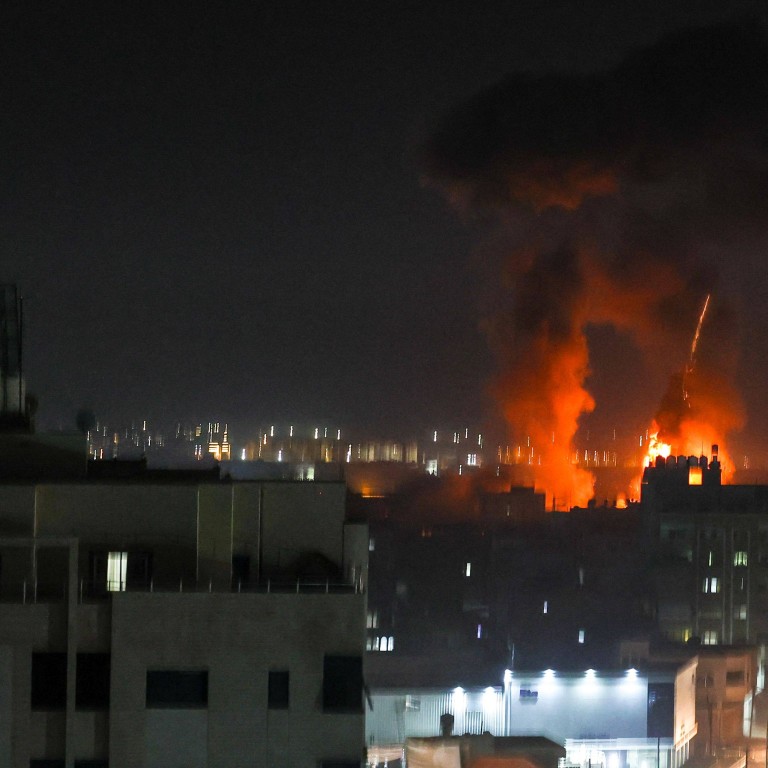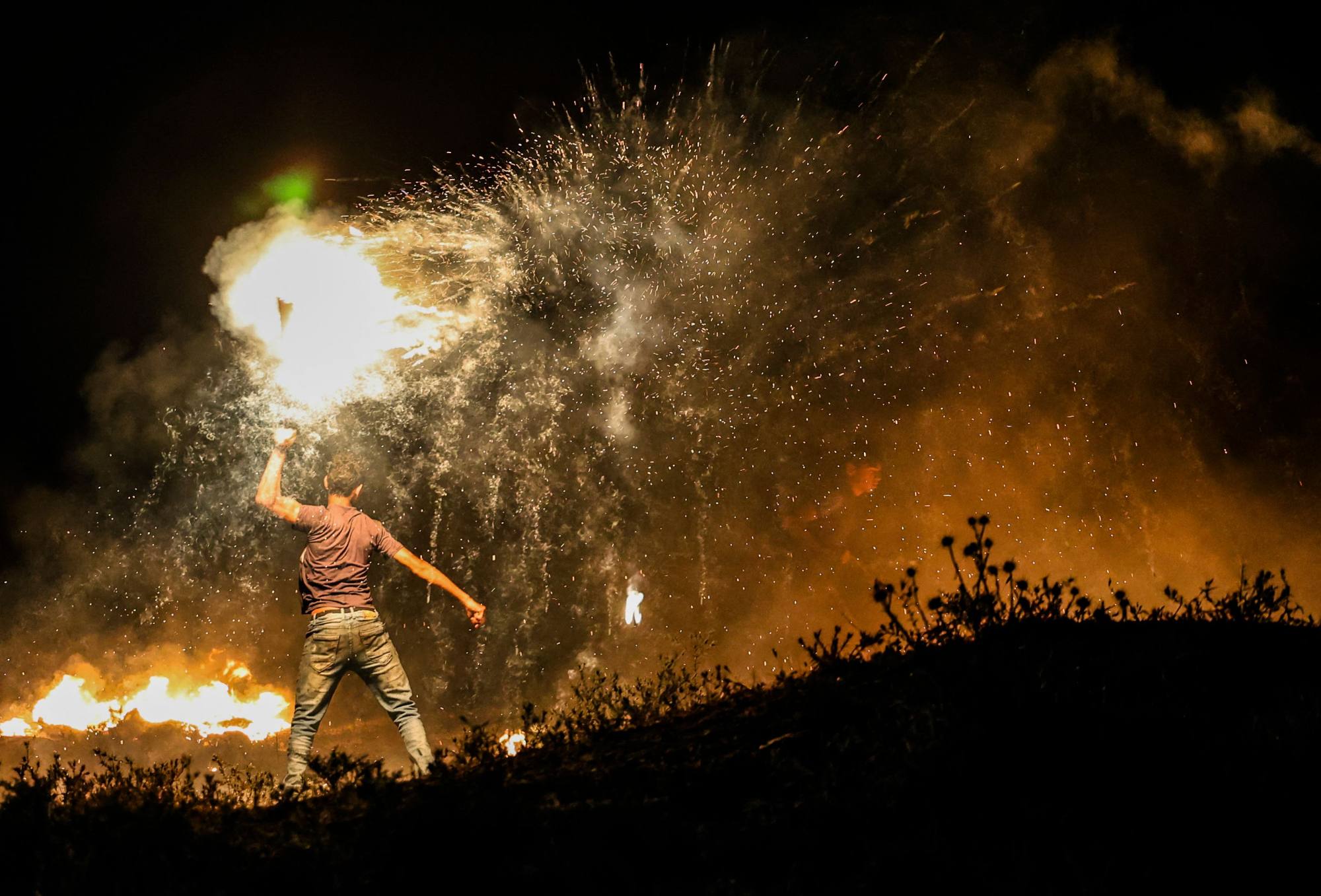
Israel responds to flaming balloons with first air strikes on Gaza since ceasefire
- Israel-Gaza violence erupts for first time since end of last month’s fighting
- The flare-up followed a march in East Jerusalem on Tuesday by Jewish nationalists
Israeli aircraft struck sites belonging to the Gaza Strip’s ruling Hamas movement early on Wednesday for the first time since an 11-day conflict last month, after incendiary balloons launched from the Palestinian territory set multiple fires in southern Israel.
The violence marred the fragile truce that ended the fighting in May, and is posing an early test to Prime Minister Naftali Bennett, who took power in Israel just three days ago.
As was the case last month, the hostilities were set off by sovereignty disputes over the holy city of Jerusalem. And while there were no casualties or attacks on symbols of power, people on both sides were bracing for the possibility of a broader new confrontation.
UN to launch investigation of possible Israeli war crimes in Gaza
Militant balloon squads touched off more than two dozen fires ahead of a march Tuesday by Jewish nationalists through Palestinian neighbourhoods in contested east Jerusalem. Palestinians consider the annual parade a provocative assertion of Israeli control over territory they seek for a future capital.
In the past, Israeli media reported, Bennett – an opponent of Palestinian statehood – has said Israel must respond to the flaming balloons as it would to rocket fire, which often draws raids.
Despite concerns that the march could reignite violence with the Palestinians, and his government’s aim to steer clear of issues that divide it, calling off the march would have opened the coalition to criticism that it bowed to the dictates of Hamas.

The militant group, which aims to assert its leadership credentials among Palestinians in the West Bank who are governed by the more moderate Palestinian Authority, had warned repeatedly that developments in Jerusalem could set off renewed fighting.
The conflict in May killed more than 250 Palestinians and 13 people in Israel.
The immediate tensions will likely cool down because the clashes weren’t widespread and Hamas was able to claim to its supporters that it stood up to Israel once more, according to Michael Milshtein, a retired colonel in the Israeli military and head of the Palestinian Studies Forum at the Moshe Dayan Center at Tel Aviv University.
How Team Biden orchestrated a shorter war in Gaza
But the violence could escalate in the next few months because water and electricity shortages in Gaza are particularly acute in the summer, setting up a potential flashpoint with the new Israeli government, he said.
Israel has demanded the return of captives and soldiers’ bodies held for years in Gaza, as well as tougher monitoring of goods and cash entering there in return for improving the economic conditions in the enclave, which has been blockaded for over a decade by Israel and Egypt.
“Israel’s new leadership is saying it will strike back hard for any kind of attack – even incendiary balloons and kites – by Hamas, which wants civilian relief,” Milshtein said. “That can very easily lead to the next major escalation.”
The Israeli military tweeted Wednesday that it was “ready for all scenarios, including the resumption of hostilities, in the face of continued terrorist operations from the Gaza Strip.”
The parade of nationalists waving blue and white Israeli flags, some chanting, “Death to Arabs,” followed a different route this year in an attempt to minimise confrontations in east Jerusalem, which Israel captured from Jordan in the 1967 Middle East war. Palestinians object to any celebration of Israeli control over the area, which is home to Muslim, Jewish and Christian shrines.
The march was originally set for May 10 – the day Israel marked its capture of east Jerusalem – but was rescheduled after Hamas fired rockets at Jerusalem in the name of defending it, following weeks of clashes between Israeli police and Palestinians in the holy city that also involved sovereignty issues.
Those rockets touched off a round of hostilities that spilled over into the West Bank and cities inside Israel.

